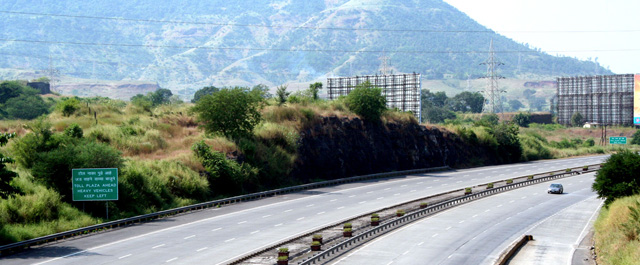Workshop on climate resilience of Africa's Infrastructure

Between the 3rd and 4th July, 2013, climate change experts from around the world gathered in Maseru, Lesotho to deliberate on climate resilience of Africa's infrastructure. The event was planned in the context of an ongoing joint project between the ACPC and World Bank on the theme of vulnerability of Africa's infrastructure installations in the face of climate change. Details of the project are provided below.
Background: Africa’s infrastructure is at present inadequate, both in terms of physical stock and quality of service, to support sustained growth in the years to come, both under current and future climate. Yet, relatively little is known about how climate change will affect the desirable design, location, timing, and composition of the stock of infrastructure that will need to be built in the short to medium term. A better understanding of the range of climate impacts on infrastructure development and of approaches to deal with the uncertainty inherent in projections of future climate change and other stressors is necessary in order to inform future investment decisions. Without this understanding, there is a risk of locking Africa into a pattern of climate‐vulnerable development that will be very costly, or in some cases impossible, to repair in the future.
Objectives: The objective of this work is to strengthen the analytical base for investments in Africa’s infrastructure under a future uncertain climate. More specifically, the program seeks to: a) Evaluate a range of impacts of climate change on a subset of infrastructures (roads, hydro‐power and irrigation) over a range of climate scenarios; b) Develop and test a framework for investment decision-making that can be ‘robust’ under a wide range of climate outcomes; c) Formulate actionable recommendations for decision makers on how to enhance the climate resilience of infrastructure development.
Description of the proposed work: The analysis will build upon the Africa Infrastructure Country Diagnostic (AICD).
The first set of activities will consist in a review and analysis of climate models to define a set of projections, at the required scale of spatial and time disaggregation, of relevant climate variables capable of adequately reproducing key uncertainties and disagreements among General Circulation Models (GCMs). The projections will include both averages (at the monthly, seasonal and yearly time step), as well as extremes (e.g. the one in 10, 20 and 50 years precipitation event); these variables will be assessed in terms of percentage change compared to a historical reference period (e.g. over the 1970 to 2000 period).
Next, the following impact analysis will be undertaken:
- Roads: The continental spatial dataset, developed under the AICD and covering road network location, design, surface condition and traffic levels, will be extended and enhanced to address the effects of climate change on plans for expanding, and maintaining, the road network. In particular, the following tasks will be carried out: (i) Analysis of the impact of climate change on road surfacing thresholds; (ii) Analysis of the effects on road design standards; (iii) Estimate of the economic impact of climate change on road development plans; and (iv) Analysis of the impact of climate change on road demand patterns
- Water resource: The water resource analysis will focus on the region’s major basins (e.g. Congo, Niger, Nile, Orange, Senegal, Volta and Zambezi), and will include the following steps: (i) Estimate of system performance at the sub‐basin level; (ii) Model impact of climate change on basin‐level performance; (iii) Evaluation of the climate risks on the delivery of water related services; and (iv) Estimate of change in investment required to deliver desired levels of system performance.
- Power: Large part of Africa’s power sector growth will depend on the development of regional power pools; institutional and commercial arrangements that enable the optimization of each of Africa’s sub‐regions endowment of energy resources. The following tasks will be conducted: (i) Update of the AICD power sector models; and (ii) Estimate of impacts of climate change on power sector investment plans, particularly hydropower investments.
- Irrigation: The economic models that were developed as part of the AICD will be augmented with the results of the analysis of water system perfomance under a range of climate change scenarios.
Further information on the this project is available here.
- Log in to post comments


